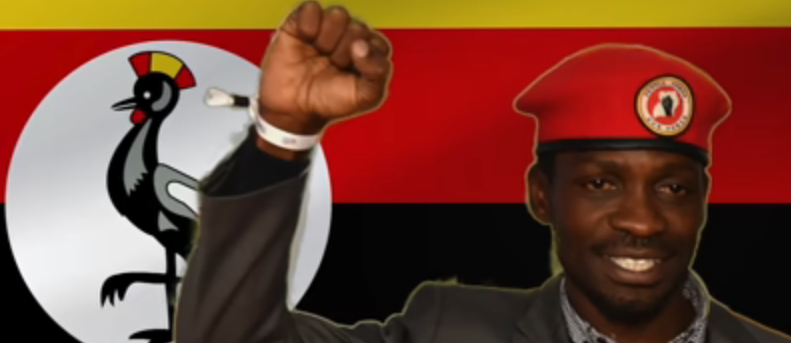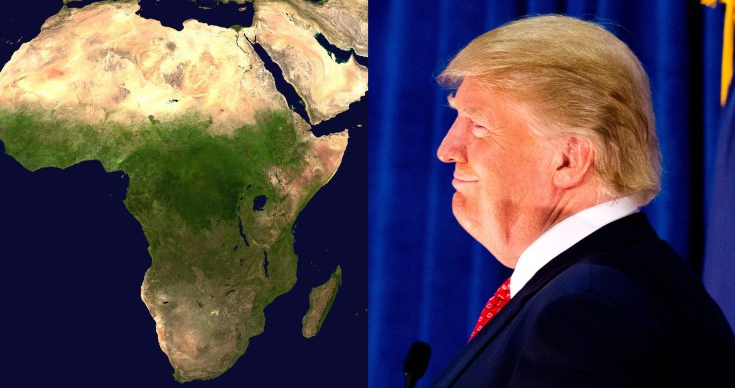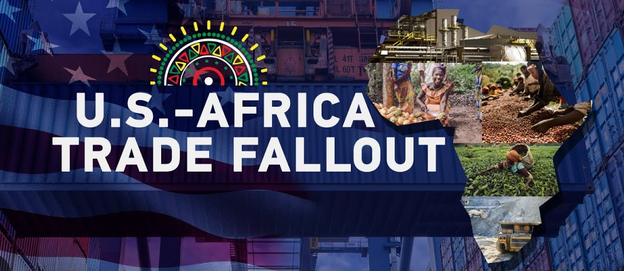By Mel Gurtov, syndicated by PeaceVoice
Photos: YouTube Screenshots
When it comes to paying attention to international news, Americans are notorious for focusing on wars, bad economic news, and not much else. That’s unfortunate, since the recently completed elections for parliament in the 27 European Union (EU) countries do impact the US government and citizens.*
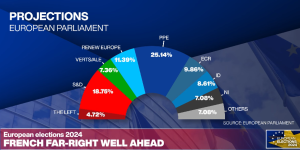
The Results and the Implications
Their position on the war in Ukraine is an obvious example. But beyond that, the rightward lurch of voting across the continent has to be of concern here. A Trump win in November, to state the obvious, will fuel the far right in Europe and beyond. And the reverse may also be true: What is happening in France in particular is especially worrisome, since democracy is believed to be on the line there as it is here.
The major issues in the European Parliament (EP) elections were the Ukraine war, immigration, and the costs of a green transition. Just as is true here, each of those issues is highly divisive. The war finds the French, the Germans, the Poles, and the Baltic countries pushing for more aid to Ukraine, while Hungary heads a much smaller group that tends to side with Russia.
Immigration is easily the most prickly issue for just about every EU country, with right-wing populist leaders and candidates finding it a winning issue—in Netherlands, most recently. And on a green economy, European Greens lost the most seats as they faced a backlash from hard-pressed households, farmers, and industry over costly EU policies limiting carbon emissions.
Let’s look first at the overall results for the main pan-European political groups in the 720-seat EP. The right-wing European Conservatives and Reformists scored the biggest gain: 73 seats (+4). All right-wing parties won about 150 seats. But they don’t all belong to the same political group, limiting their power.
The three leading conservative and liberal groups—European People’s Party, Socialists and Democrats, and Renew Europe—together lost 17 seats, but won 400 seats altogether. They have the best chance of forming a coalition and staying the majority group in parliament. That’s why EU Commission head Ursula von der Leyen said, “The center is holding,” though extremists “have gained great support.” Indeed, although headlines here and abroad highlighted a huge right-wing populist victory, the figures indicate that center-left and center-right parties still constitute a majority.
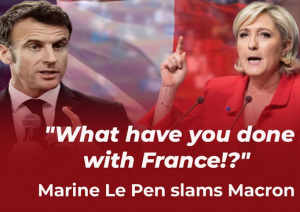
High Drama in France
Most worrisome is that the far-right’s biggest gains were in Germany, Italy, and especially France. In Germany, Chancellor Olaf Scholz’s Social Democrats similarly suffered a major defeat, winning just 14 percent of the vote. The far-right AfD got 16.5 percent and the Christian Democrats 29.5 percent. And in Italy, right-wing leader Giorgia Meloni’s Brothers of Italy party came out on top with about 29 percent of the vote—a major gain of 14 seats.
The French situation is particularly concerning. Marine Le Pen’s National Rally party got 31.5 percent of the vote to Pres. Emmanuel Macron’s Renaissance party’s 15.2 percent. That glaring defeat led Macron to dissolve the National Assembly and call for a snap election, a strategy he characterized as an “unpinned grenade.”
Apparently, Macron is banking on the National Rally winning but proving incompetent at government. It’s a plan many in France believe will backfire. Early polls show the far right well ahead in new parliament elections, with the leftist parties second. Macron’s popularity has fallen to a five-year low at 24 percent. France faces a debt crisis, bonds and equities are tumbling, and its economy is limping along even more slowly than Britain’s.
Nevertheless, Macron is banking on two things: first, a massive show of strength in the streets against the far right, which is already happening; second, formation of a coalition with other centrist parties. “Things are simple today: we have unnatural alliances at both extremes … who will not be able to implement any program,” Macron said.
He vows to stay in office through his term, which ends in 2027, no matter what. As he said after calling for a snap election: “Everybody sees the flood waters of the far right rising. Everybody is saying [Macron] will hand them the keys of power. I don’t want to give them the keys to power in 2027.” The election will be held in two rounds, June 30 and July 7.
So far, the political situation since the snap election announcement is chaotic. Even if the far right gains the #1 position in parliament, it will still not be able to govern by itself. Le Pen’s National Rally is therefore trying to bring a center-right party, Les Républicains, into the fold, but is facing resistance. Leftist parties are coming together against all sides with a worker-friendly program that includes tying wages to inflation, a wealth tax on the rich, and a lower retirement age.
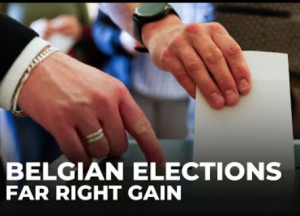
A Few Nice Surprises
There were some pleasant surprises. In Hungary, the EP vote was seen as a referendum on right-wing Prime Minister Viktor Orbán. He had a new opponent: Péter Magyar, a former government insider who switched sides and launched an opposition movement. Ahead of the elections, Orbán’s ruling Fidesz party ran an intense disinformation campaign claiming, without proof, that there is a global conspiracy to force Hungary into a war with Russia and that Hungary’s opposition is being directed by the West to undermine Orbán. The election results? Fidesz and Orbán scored their lowest vote in nearly two decades: 11 seats compared with 7 for Magyar’s party.
Poland also has some good news. The new Prime Minister Donald Tusk’s party defeated a right-wing party, bolstering Poland’s position as a pro-Europe, pro-Ukraine force.
Netherlands also surprised. The GreenLinks party came in first with eight seats, or 21 percent of the vote. Two other conservative-liberal parties won seven seats altogether. But the right-wing Party for Freedom (PVV) scored the biggest gain: six seats, or 17 percent. PVV leader Geert Wilders, fresh from taking over the government, announced that it is planning to opt out of EU rules governing asylum for immigrants. That plan would put it at odds with the EU leadership, and set a disturbing precedent.
To sum up, Europe does not (yet) face a political crisis on the order of Winston Churchill’s famous Iron Curtain speech. But right-wing politics is widely popular and gaining strength in nearly every major electoral contest so far. We’ll know more, and very soon, by watching the outcome in France.
* The election process can seem bewildering from the outside. Each EU country voted over a 4-day period for delegates to the 720-seat European Parliament (EP). The EP, which holds elections every five years, deals with legislation that affects all member-states, including budget, human rights, environment, and international treaties. Each country has an allotted number of seats that are contended by its political parties. The elected ministers are determined by the proportion of each party’s vote. They then join one of seven groups in parliament, which are based on political leanings, not nationality.

Mel Gurtov, syndicated by PeaceVoice, is Professor Emeritus of Political Science at Portland State University and blogs at In the Human Interest.

